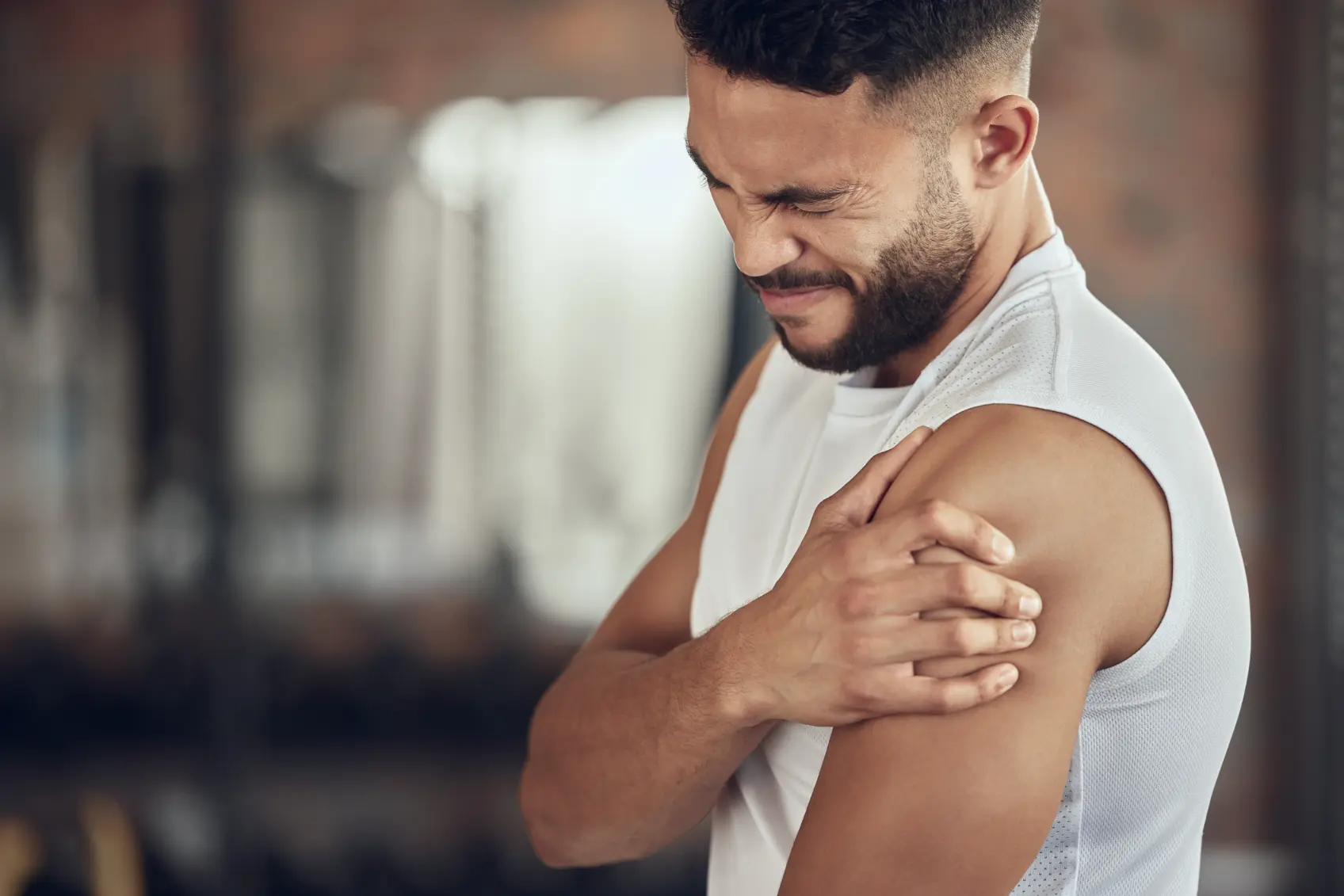
Shoulder Pain and Rotator Cuff Injuries
Summary
When the group of muscles in your shoulder joint are inflamed or injured, it's called a rotator cuff injury. Common treatments include exercise, injections and surgery. If you have a rotator cuff injury, staying active with appropriate movements while avoiding activities that worsen your symptoms can help with recovery. At the White House Clinic's 14 locations across South Yorkshire, North East Derbyshire and Nottinghamshire, physiotherapy services help patients recover and ease pain.
An overview of shoulder pain and rotator cuff injuries
The rotator cuff is the name for a group of muscles around the shoulder joint. It helps to stabilise it and control movements. When this area becomes injured due to wear and tear, overuse or a fall or accident, it is referred to as a rotator cuff injury. It is a common cause of shoulder pain in older and active people – in fact, studies show that up to 22% of the over-40s will suffer from problems with their rotator cuff.
Symptoms of shoulder pain and rotator cuff injuries
From weakness to a limited range of motion, there are various symptoms associated with rotator cuff injuries:
- a dull ache
- severe or sudden pain that may spread to the elbow
- pain that is worse when lifting your arm above your head
- weakness when you lift or move your arm
- a clicking or grating sound
Causes of shoulder pain and rotator cuff injuries
A rotator cuff injury can occur from overuse or an acute injury. Trauma such as a heavy lift, shoulder dislocation or sports impact can cause a tear of the rotator cuff.
Repetitive overhead movements such as those involved in racquet sports, swimming and manual work can also cause shoulder pain and rotator cuff injuries.
When to see someone for shoulder pain and rotator cuff injuries
If shoulder pain doesn't get better within a few weeks, you should see a physiotherapist who can assess your shoulder and diagnose the condition. A physiotherapist at one of the White House Clinic’s locations across South Yorkshire, North East Derbyshire and Nottinghamshire can provide a comprehensive assessment and suggest treatments.
What to do if you have shoulder pain and rotator cuff injuries
If you think you have a rotator cuff injury, see a physiotherapist who can provide targeted exercises.
Stay active and gently move your shoulder. Don't completely stop using it, as this can impede recovery. Sit down with proper posture and use a cushion behind your lower back if needed.
Avoid exercise or activities that seem to worsen the condition. This could include strenuous overhead exercises – for instance, racquet sports or swimming – or the use of heavy gym equipment. You can still maintain cardiovascular fitness with activities that don’t cause you pain.
Treatment for shoulder pain and rotator cuff injuries
From physiotherapy to steroid injections and surgery, there are treatments to help your shoulder pain and rotator cuff injury.
Physiotherapy
A physiotherapist will assess your shoulder and provide exercises to help build your strength, maintain function and improve mobility. The exercises the physiotherapist prescribes will gradually become more challenging – you can see some of the most useful shoulder exercises in the White House Clinic’s guide to the rotator cuff. The health professional will help you return to your everyday activities and advise you on how to avoid further pain.
Injections
Steroid injections can reduce shoulder inflammation and pain. The White House Clinic offers steroid injections through our Sports and Exercise Medicine service at our Sheffield West clinic. Pain relief typically lasts around six weeks and may enable you to do your physiotherapy exercises more easily.
Surgery for shoulder pain and rotator cuff injuries
If you have a rotator cuff tear, you may need surgery to repair it. While a rotator cuff tear doesn’t always heal on its own, surgery isn't always necessary. You can alleviate pain by building up strength and mobility in your shoulder through physiotherapy. If you have surgery, the surgeon will refer you to a physiotherapist for rehabilitation.
Who's affected by shoulder pain and rotator cuff injuries
Shoulder pain from a rotator cuff injury affects adults of any age. It is more common around middle age and can develop gradually as part of the ageing process. It can also happen suddenly after an accident.
Reducing the risk of shoulder pain and rotator cuff injuries happening again
To reduce risk of rotator cuff injuries, maintain good shoulder strength and mobility through regular exercise. Avoid sharp increases in overhead exercise, and ensure proper technique when lifting or performing repetitive movements. A physiotherapist can provide specific strengthening exercises for the rotator cuff muscles to help prevent future injury.
At the White House Clinic, we offer physiotherapy consultations and treatments at locations across South Yorkshire, North East Derbyshire and Nottinghamshire, helping you prevent, manage or recover from rotator cuff injuries and shoulder pain.
References
Related Treatments & Services
Discover a range of treatments and services that can help you on your way to full health.












